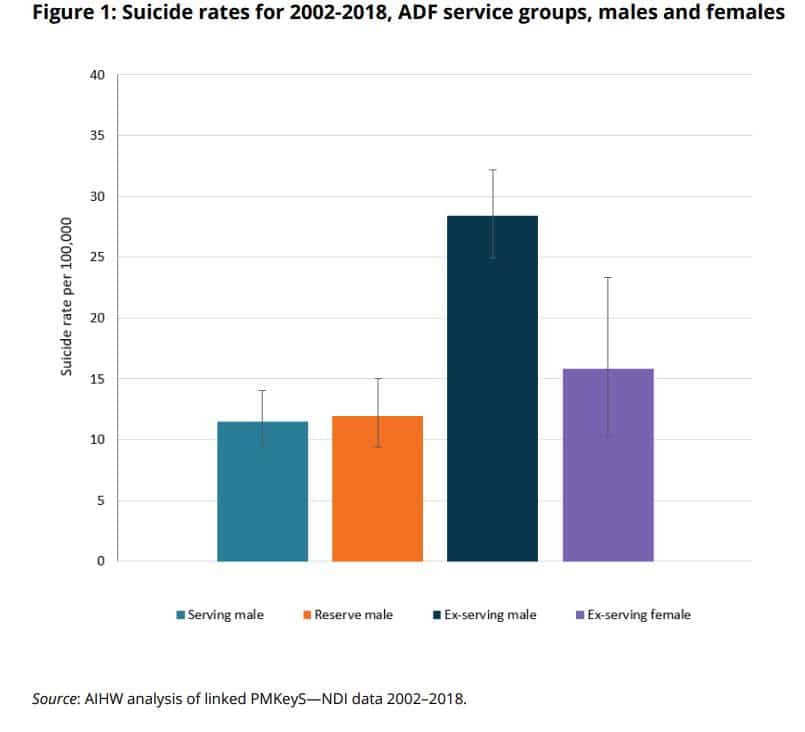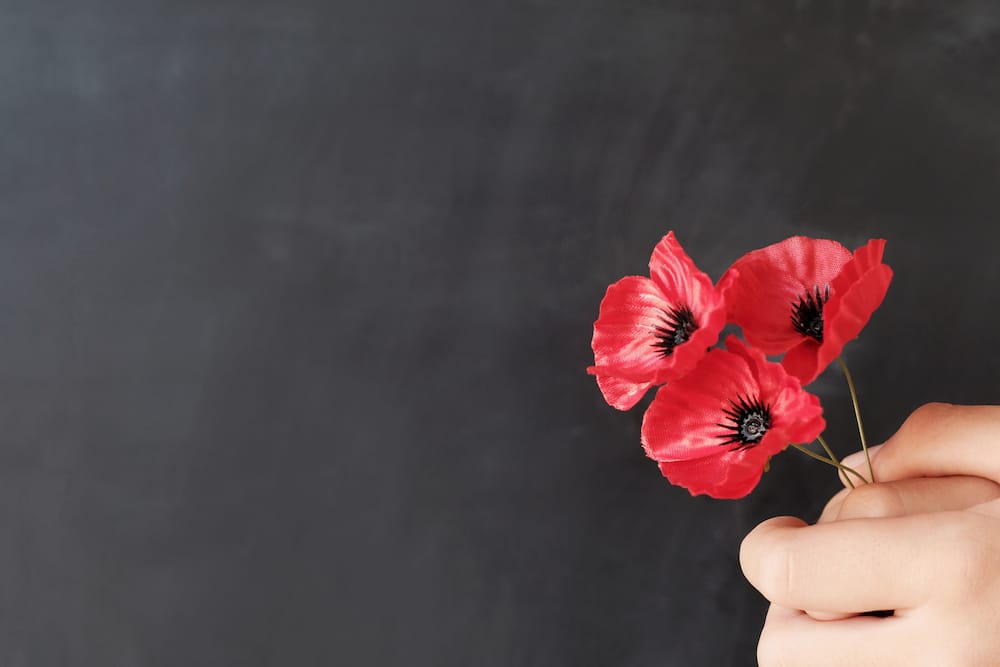Emma Davidson, ACT Minister for Mental Health, sought the Legislative Assembly’s support last week for a Royal Commission into suicide rates among current and former ADF personnel.
“A defence force is not made up of trucks, or tents, or guns,” Ms Davidson said. “It is made up of people. What kind of society are we if we don’t care for and support our people?”
Rates of mental illness and suicide among veterans were much higher than in the broader community, she said. Nationally, on average, one veteran has committed suicide each fortnight since 2001; this rate had risen to one suicide a week since the Brereton report into murders committed by Australian Special Forces in Afghanistan was published last year.
The Australian Institute of Health and Welfare’s 2020 report found that between 2002 and 2018, ex-servicemen were 21% more likely (28 per 100,000) to commit suicide than other men, and ex-servicewomen 127% more likely (16 per 100,000) than other women.
Suicide rates were higher among ex-serving men aged under 30 (24 per 100,000 in 2016–18; varying between 23 and 47 per 100,000 from 2007 and 2018) than in men in the broader Australian population (21 per 100,000 in 2016–18).
However, the report found no evidence of a significant difference in suicide rates between ex-serving men aged 30 and over (30 per 100,000 in 2016–18; varying between 23 and 32 per 100,000 between 2007 and 2018) and men in the same age range in the broader Australian population (23 per 100,000).

Medical discharge was associated with an increased risk of suicide, the report found. Men discharged from service on medical grounds had higher rates of suicide (66 per 100,000) than those discharged for other involuntary reasons (36 per 100,000) or who discharged voluntarily (21 per 100,000) (2002–2018 figures). Rates of suicide were not available for women due to small numbers.
However, between 2016 and 2018, the age-adjusted rate of suicide in serving males was 37% lower (50% lower for 2002–2018), and 47% lower (49% lower for 2002–2018) for men in the reserves, compared to the Australian population. Between 2007 and 2018, ex-serving men who discharged voluntarily from the army had similar rates of suicide to Australian males.
Almost 408,000 people have signed a petition for a Royal Commission started by Julie-Ann Finney, whose son David, a retired Royal Australian Navy officer suffering from post-traumatic stress disorder, took his life in 2019. Last month, the Senate and the House of Representatives called on Prime Minister Scott Morrison to establish a Royal Commission.
“We have a duty to ensure that those who have given the commitment to serve are not left to fall through the cracks,” Ms Davidson said. “We owe it to the veteran community, to those who have died by suicide, and to their families left behind, to establish the highest form of truth-seeking on this issue.”
However, Liberal MLA Jeremy Hanson, Shadow Minister for Veteran Affairs, proposed instead that the Assembly should support the National Commissioner for Defence and Suicide Prevention, established last year, and that Ms Davidson should write to the Federal Minister for Veterans’ Affairs, the Hon. Darren Chester MP, asking the government to consider a separate Royal Commission.
“Establishing the permanent ongoing process and then looking towards a Royal Commission is a win-win,” Mr Hanson said.
He pointed out that establishing a Royal Commission was within the Federal minister’s ambit, not the Assembly’s and was concerned that the ACT Government had not consulted veterans’ groups about a Royal Commission. He argued that as the Royal Commission was only “a snapshot in time”, it could not examine veterans’ issues as they emerged, unlike the “ongoing” National Commission. In this, Mr Hanson echoed the Prime Minister’s preference for a permanent National Commission to address root causes of veteran suicide, rather than a temporary Royal Commission.
Moreover, Mr Hanson noted, the National Commission was supported by veterans’ mental, suicide prevention, and mental health organisations, including Mental Health Australia and Suicide Prevention Australia (joint submission), the Defence Force Welfare Association, the Vietnam Veterans Association of Australia, the Royal Australian New Zealand College of Psychiatrists, the RSL, and Soldier On.
“There was a view that notwithstanding some staunch continued support for a Royal Commission into veteran suicides, a National Commissioner would serve veterans far better than another inquiry that many felt would do little more than lead, yet again, to a lengthy process of inquiry and result in a series of tedious conclusions,” he said.
Mr Hanson’s amendment was negatived. Tara Cheyne, Minister for Human Rights, said she understood Mr Hanson’s intentions, but feared a National Commission would be a “token … set up to appease”, and would focus on future deaths, not those that had already occurred.
“[A Royal Commission is] not about issues that will emerge; we know what the issues are now. … It’s not something to look into the future deaths of veterans, like the National Commission proposes. How will that help?”
Ms Davidson stated that she had written to Mr Chester about the “urgent” need for mental health services for veterans. The ACT Government also sat on an intergovernmental forum, the Veterans’ Wellbeing Taskforce, Ms Davidson noted.
If this story raised concerns, help is available. Call or visit the website of Lifeline (13 11 14). In an emergency, call 000.



